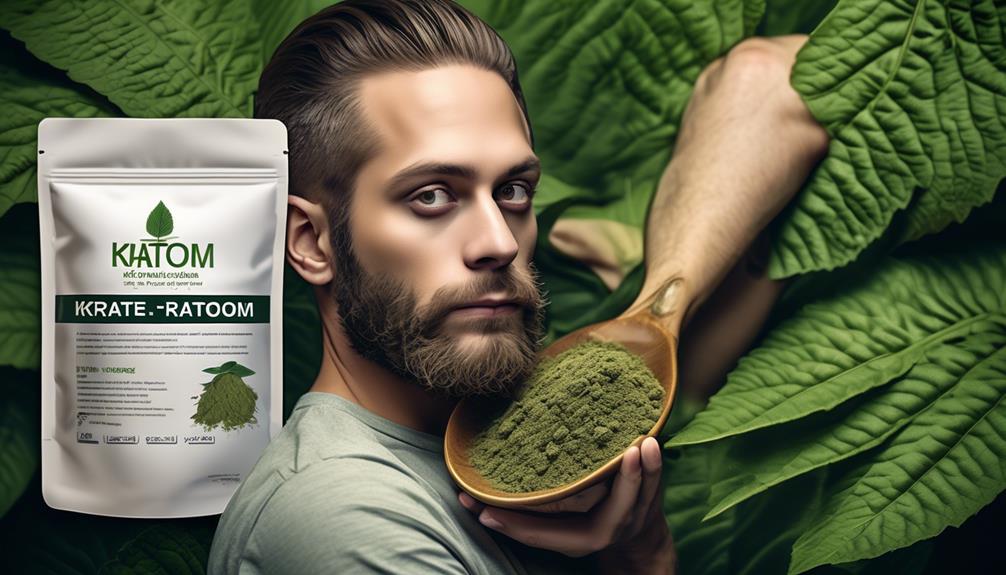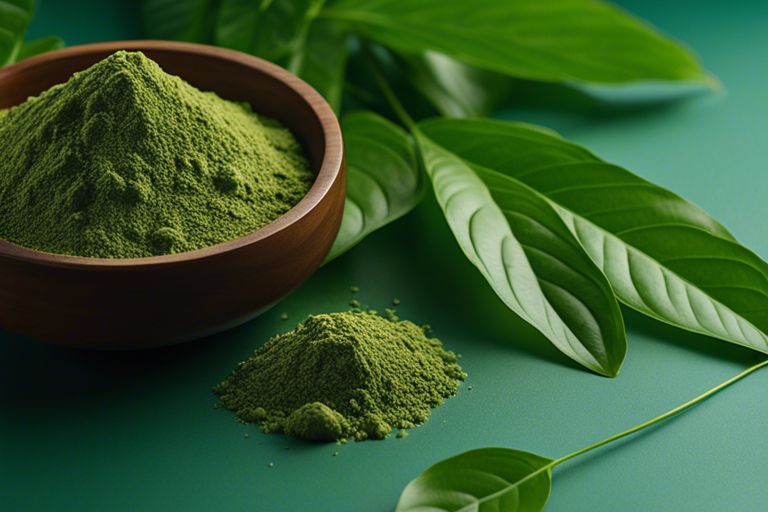Are you concerned about the potential link between kratom and hair loss? While some individuals have reported experiencing hair loss while using kratom, it is important to note that scientific evidence supporting this claim is limited. Although there has been one study mentioning kratom-related hair loss, further research is needed to establish a direct connection. It is crucial to consider other factors such as long-term daily use of kratom, underlying health conditions, and possible deficiencies that could contribute to hair shedding. Therefore, if you are experiencing hair loss and are unsure about its cause, it is advisable to seek guidance from a healthcare professional to determine the underlying issue and explore appropriate treatment options.
Possible Causes of Kratom Hair Loss
Possible causes of kratom hair loss include long-term daily use of kratom, which may contribute to hair loss as a potential side effect, as well as kratom toxicity as tolerance builds, potentially leading to hair loss. While the direct relationship between kratom and hair loss is not fully understood, there are several mechanisms that could explain this phenomenon.
One possible cause is that kratom may affect hormones or weaken hair follicles, leading to hair loss. Hormones play a crucial role in the hair growth cycle, and any disruption in their balance can result in hair shedding. Kratom’s impact on hormone levels could potentially trigger hair loss in susceptible individuals.
Another factor to consider is the high doses of kratom that some users consume. Experiencing hair loss could be a result of the body’s response to these large doses. It is important to note that hair loss caused by kratom may be a temporary type of hair loss, known as telogen effluvium, which can be reversed once the underlying cause is addressed.
Additionally, long-term kratom users may also be at risk of nutritional deficiencies due to poor dietary habits or impaired nutrient absorption. These deficiencies can contribute to hair loss. Replenishing these nutrients through a well-balanced diet or supplements may help re-grow hair lost due to kratom usage.
It is crucial to emphasize that further research is needed to determine the exact causes of hair loss in relation to kratom. While some individuals may experience hair loss while using kratom, it is essential to consult with a healthcare professional to explore potential underlying causes and discuss appropriate hair loss treatments.
Treatment Options for Kratom Hair Loss
Kratom-induced hair loss requires proper treatment, which involves consulting a healthcare professional to diagnose the cause and explore potential solutions. While hair may regrow once kratom use is discontinued, it is important to address any underlying causes of hair loss. There are several treatment options that can be considered under medical supervision.
One possible treatment option is the use of medications such as finasteride and minoxidil. Finasteride is a medication that can help block the conversion of testosterone to dihydrotestosterone (DHT), which is believed to contribute to hair loss. Minoxidil is a topical medication that can stimulate hair growth and revive dormant hair follicles. These medications should only be used under the guidance of a healthcare professional, as they may have potential side effects.
In addition to medications, maintaining overall hair health is important. This can be achieved through a balanced diet that includes essential nutrients for hair growth, such as vitamins A, C, and E, as well as biotin and zinc. Gentle hair care practices, such as avoiding excessive heat styling and minimizing the use of harsh chemicals, can also help prevent further hair damage. Managing stress through techniques like meditation or exercise may also contribute to overall hair health.
It is important to note that further research is needed to establish a clear link between kratom use and hair loss. While some evidence suggests that kratom may have an impact on the immune system and hormone levels, it is crucial to exercise caution when attributing hair loss solely to kratom. Consulting a healthcare professional is essential to determine the underlying cause of hair loss and develop an appropriate treatment plan.
Tips for Preventing Kratom Hair Loss

To prevent kratom hair loss, it is important to take proactive measures and make informed choices regarding kratom usage. While the exact cause of hair loss associated with kratom is not yet scientifically proven, there are steps you can take to reduce the chances of experiencing this side effect. Here are some tips to help you prevent kratom hair loss:
- Monitor and Limit Kratom Dosage: One potential factor contributing to hair loss may be the dosage and frequency of kratom use. Keeping a close eye on your dosage and limiting it can help minimize the risk of hair loss.
- Seek Professional Advice: If you are experiencing hair loss and suspect it may be linked to your kratom usage, it is essential to consult with a healthcare professional. They can help identify the cause of your hair loss and determine whether kratom is a contributing factor.
- Maintain a Balanced Diet: A well-balanced diet rich in essential nutrients, such as vitamins A, C, and E, biotin, and zinc, can support overall hair health. Including these nutrients in your diet can help mitigate potential hair loss.
- Ensure Quality and Purity: Investigate the quality and purity of the kratom products you purchase. Low-quality or contaminated kratom may contain substances that contribute to hair loss. Be sure to source your kratom from reputable vendors.
Symptoms of Kratom-Related Hair Loss
If you are experiencing hair loss and suspect it may be related to your kratom usage, it is important to be aware of the potential symptoms associated with kratom-related hair loss. While scientific evidence supporting this link is currently lacking, there have been reports of certain symptoms in individuals who attribute their hair loss to kratom use. These symptoms may include:
- Gradual thinning: Some individuals have noticed a gradual thinning of their hair over time. This can be distressing and may affect one’s self-esteem and confidence.
- Receding hairline: Another symptom reported by some individuals is a receding hairline. This can create a more aged appearance and may cause feelings of insecurity.
- Patchy bald spots: In some cases, kratom-related hair loss may manifest as patchy bald spots on the scalp. These spots can be unsightly and may lead to feelings of embarrassment.
- Changes in hair texture: Along with hair loss, some individuals have noticed changes in the texture of their hair. It may become dry, brittle, or lackluster, further contributing to concerns about appearance.
While experiencing these symptoms can be distressing, it is important to consult a healthcare professional to determine the underlying cause and potential treatments. Hair loss can have various causes, and kratom may not be the sole culprit. A healthcare professional can help evaluate your overall health, assess hormone levels, and provide guidance on potential treatment options, which may include adjusting kratom usage, following a balanced diet, and using hair regrowth treatments.
The Link Between Kratom and Hair Loss

Limited scientific evidence exists regarding the link between kratom and hair loss, but self-reported claims suggest a possible association between excessive kratom consumption and hair loss symptoms. While concrete evidence is lacking, it is important to explore the potential mechanisms through which kratom may contribute to hair loss.
One possible explanation is that excessive kratom use could trigger an overactive immune response in the body. This heightened immune response may lead to inflammation, which can damage hair follicles and contribute to hair loss. However, it is crucial to note that this theory is speculative and requires further investigation.
Another consideration is the impact of long-term, high-dose kratom use on hormonal balance. Kratom has been reported to affect testosterone levels, which could potentially lead to hair loss. However, more research is needed to fully understand the relationship between kratom and hormonal changes that may contribute to hair loss.
It is worth noting that other factors should be considered before attributing hair loss solely to kratom use. Underlying health conditions, stress, and certain medications can also contribute to hair loss. Therefore, it is important to consult with a healthcare professional to identify any potential underlying causes.
Furthermore, the specific strains and vendors of kratom may also play a role in hair loss symptoms. Different strains may have varying effects on the body, and the quality and purity of kratom products can differ among vendors. However, there is currently no scientific evidence to support these claims.
To better understand the potential link between kratom and hair loss, further research, including animal studies and clinical trials, is necessary. Until then, individuals experiencing hair loss symptoms should consult with a healthcare professional to determine the most appropriate course of action. Additionally, maintaining a balanced diet and employing gentle hair care practices can help manage hair loss potentially associated with kratom use.
Can Suboxone Help with Kratom-Related Hair Loss?
Suboxone treatment for kratom may not directly address hair loss related to kratom use. Suboxone is primarily used to treat opioid addiction, while hair loss from kratom is not a well-documented side effect. It’s important to consult a healthcare professional for advice on managing kratom-related complications.
Frequently Asked Questions
What Drug Makes Your Hair Thin?
If you’re experiencing hair thinning, several factors could be at play. Common causes include nutritional deficiencies, hormonal imbalances, stress, and aging. To prevent hair thinning, ensure a balanced diet, manage stress levels, and maintain scalp health. Natural remedies like essential oils and scalp massages may promote hair growth. Additionally, adopting hairstyles and using products designed to conceal thinning hair can boost your confidence. Remember, consulting a healthcare professional is essential to determine the underlying cause of your hair loss.
What Drug Stops Hair Growth?
If you’re wondering what drug stops hair growth, there are a few factors to consider. Natural remedies, such as using essential oils or herbal supplements, may promote hair growth. Dietary factors, like eating a balanced diet rich in vitamins and minerals, can also impact hair health. Common causes of hair thinning include hormonal imbalances, genetic factors, and stress. To prevent hair loss, it’s important to practice good hair care, manage stress levels, and address any underlying health issues.
Does Drug-Induced Hair Loss Grow Back?
Yes, drug-induced hair loss can potentially grow back once you discontinue the drug and allow your body to recover. The recovery of hair growth may vary based on factors such as your individual body, the duration of drug use, and the specific drug involved. It’s important to seek professional medical advice to address the underlying causes of hair loss and explore appropriate treatments for regrowth. In addition, incorporating natural remedies, making lifestyle changes, and maintaining a balanced diet can support the recovery of hair growth.
What Drug Induced Excessive Hair Growth?
Excessive hair growth can be induced by certain medications like minoxidil, which is commonly used for hair regrowth. However, it’s important to note that not all drugs have this effect. Natural remedies, like essential oils and scalp massages, can also promote hair growth. Stress has been linked to hair loss, so managing stress levels is crucial. A balanced diet, rich in vitamins and minerals, is essential for healthy hair. Prevent hair breakage by avoiding harsh styling techniques and using protective hairstyles.










